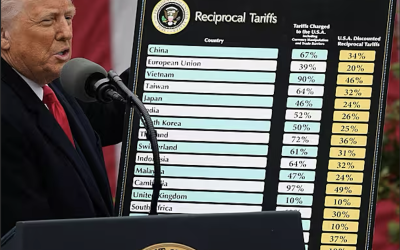Ireland’s national state radio RTE, held a panel discussion to unpack and debate the thinking behind the latest round of US tariff announcements and how Europe could and should respond. Ambrose Conroy, Seraph CEO, joined the discussion with panellists from Deloitte, The Times newspaper and European Movement Ireland.
Listen back here:
https://www.rte.ie/radio/radio1/clips/22502555/





